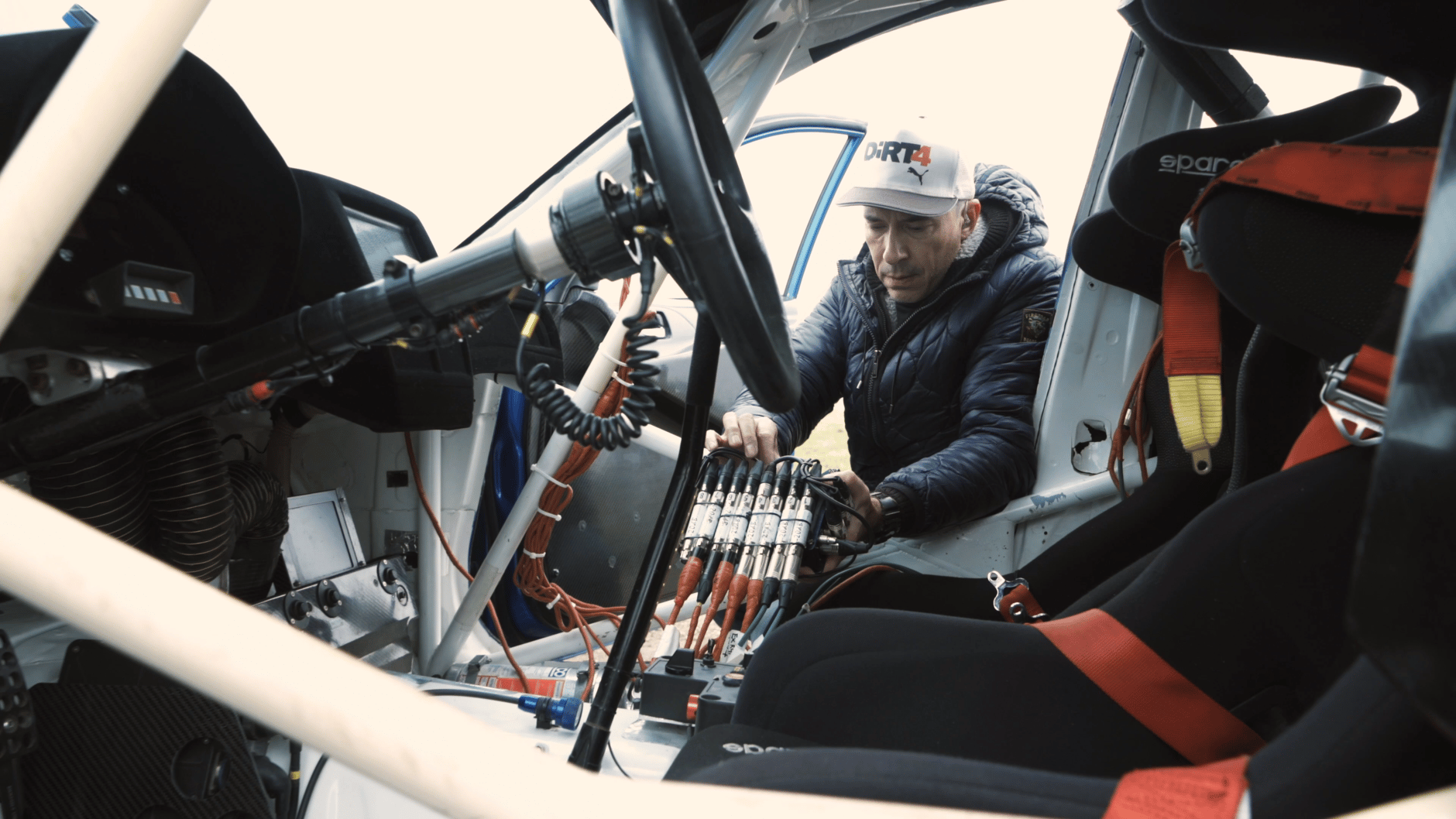With a “Racing Ahead” tagline that pays homage to the video game format that grew the company into the powerhouse it is today, Codemasters’ biggest titles include GRID, Formula One and DiRT (DiRT and DiRT Rally) series racing sports games.
Codemaster was founded by brothers David and Richard Darling in 1986. “They developed a series of titles that gained a lot of popularity in the marketplace and established themselves as award-winning developers of motor sports titles and adventure games,” explains Jojo. “They were subsequently bought out, but the Codemasters brand was retained and still continues with motor sports titles and racing simulations.”
Jojo himself has also long been in the gaming industry, having gotten his start in 1992 - shortly after the Codemasters name hit the market. “Over the years, I'd worked for a few British-based publishers and, in the early 2000s, I started freelancing on game audio and writing and producing music for TV and commercials. [At that time, a] colleague working at Codemasters offered me some freelance work. I'd had working experience with him in the past, and that kind of spilled over. He was trying to sort of coerce me into committing to work in a studio environment full-time. I came on board in 2009 to work on DiRT 3, and I've been here ever since.”
Prior to going full-time with Codemasters, Jojo was involved with a lot of bands and was working in Hong Kong for a post-production house. “One of my friends [was] working in the QA department for an emerging game software developer based in Manchester,” he says. “He asked me if I would be interested in writing music and doing art and illustration for what was then the early eight-bit console -- Nintendo and Sega consoles. I came back from Hong Kong [for] a little bit of a breather and I took him up on his offer. I basically just chilled out there and they offered me a job to write and program music and sound for games.”
Shortly thereafter, that group of professionals became part of the Nintendo Dream Team, a very exclusive and limited number of developers exclusively hired for Nintendo. “We had some very talented programmers there who managed to create their own [development] tools and Nintendo got wind of that, [so] we became part of that click of developers,” adds Jojo. As a result, “I cut my teeth on very early sample-driven and sound chip-driven eight-bit and 16-bit console stuff. Back in the day, you basically had to crank out the music, sound design, speech, whatever it was, from memory. Going back from the 90s to where we are now, it's just staggering how things have evolved to where we are now. The development cycle back then could have been six months or even less. Now, we're looking at a year to two years, depending on the size and the scope of the game. And, where it may have been a handful of sound, designers, [now] we’re looking at a phalanx of sound designers and people specializing in a technical integration and creative sound design.”
In modern game design, Jojo explains that there are people assigned as the leads or architects for each area, including game audio. “It's quite impressive how far things have come,” he continues. “The area that we're involved with is firmly rooted in reality, obviously, being sim based. So, we're kind of charged with trying to convey that element of realism using the most authentic assets that we can source and trying to create assets that we can implement into the build. They are as realistic and as dynamic as possible.”








